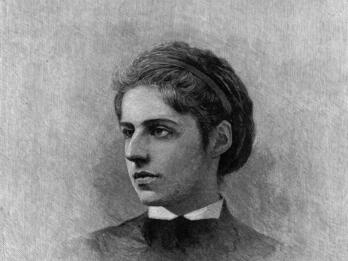Awake My People!
Judah Leib Gordon
1866
Related Guide
Jewish Culture Confronts Modernity
Between 1750 and 1880, Jews were at the forefront of literary, visual, material, musical, and intellectual culture, introducing new techniques, innovative approaches, and fresh ways of looking at the world.
Related Guide
Literature and Modernity
Jewish writing in the period spanning 1750–1880 reflects the profound changes that confronted Jews in modernity. Some writers self-consciously broke with traditional and religious models; others definitely embraced it.
Related Guide
Poetry and Modernity
Jewish poets throughout Europe and the Americas created in the languages of their native tongues, allowing us access to voices and moments, particular and collective, that we would otherwise not hear.
Creator Bio
Judah Leib Gordon
Judah (Yehudah) Leib Gordon, the most renowned Hebrew-language poet of the nineteenth century, was born and raised in Vilna. By the 1860s, he had emerged in that city as a leading advocate and living symbol of the Russian Haskalah ideal: representing a vision of Jewish integration into Russian imperial civil society by virtue of adopting the Russian language and Western norms coupled with a regeneration of Jewish culture through moderate religious reform, advocating improvement of the woeful status of Jewish women, and promoting a renaissance of Hebrew creative writing. In 1872, he moved to St. Petersburg to serve as secretary of the Society for the Promotion of Culture among the Jews of Russia. Calling more openly for a theological and ritual reform of Judaism itself, he was denounced by Orthodox opponents and briefly exiled to the Russian interior by tsarist authorities. Once exonerated, he became associate editor of the Hebrew paper Ha-melits, continuing to critique the rabbinic leadership in Eastern Europe and to expose the negative impact of extreme Orthodoxy on Jewish society through his writing. Gordon wrote essays and sharply incised short stories, but the heart of his creative output was a large body of civically minded Hebrew poetry that ranged from an evocative retelling of a biblical love story to blistering critiques of traditional East European Judaism’s intransigent antimodernism, powerful calls for Jewish self-renewal, and deep identification with women struggling against multiple forms of oppression. In the 1880s, Gordon lost his centrality in Russia’s Hebrew cultural milieu, both because his unchanging liberal-integrationist politics were out of keeping with emerging Zionist visions and because his poetry quickly came to seem old-fashioned in both theme and voice.
You may also like
Emet ve-emunah (Truth and Faith)
The Tip of the Yod

Epochs



